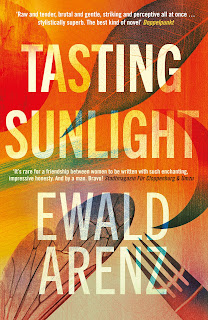This post contains affiliate links. If you click through and buy I will receive a percentage commission at no extra cost to you.
This post is part of the blog tour for the book. Thanks to Random Things Tours and Aurum Press for providing me with a free copy of the book in exchange for an honest review.
Menmuir enthusiastically (and occasionally
tentatively) throws himself into the pursuits of those he meets. Beachcombing
(or wrecking, as it’s known in Cornwall) becomes an absorbing pastime, but he
comments on the conflict between the joy he feels at finding small pieces of
plastic toys and the guilt at taking more pleasure in them than his natural
finds. He is all too aware of the damage human activity is wreaking on the
natural world. He meets a lobster fisherman, Jof Hicks, who goes about his work consciously
and sustainably, handcrafting the lobster pots and fishing only in small
quantities. When questioned on whether it’s worth the time he replies that it’s
good exercise, peaceful, and time that millions of others fritter away staring
at screens.
He introduces us city-dwellers to
a different way of life, where families head straight to the beach for some
surf time after school and where your plumber might vanish for weeks in the middle
of a job on getting wind of some irresistible waves. Threats to the way of life
are also highlighted with communities decimated in a wave of second homes that
remain empty for the majority of the year. This, and other factors such as the
profitability of short-term lets, means that many locals are being priced out
of the areas they were born.
Despite the challenges and conflicts
of coastal life it’s also clear that the connection to the water can be hugely
beneficial for mental health. The peace and exhilaration of free-diving and the
integral focus on controlling your breath turns it into an almost meditative
exercise. I was also absolutely fascinated to learn about the mammalian dive reflex
which allows humans to hold their breath for much longer under water than they
would above the surface.
In the early days of the Covid
pandemic photographers Mike Guest and Nick Pumphrey began the Dawn Days of May
project, in which they took a wetsuit and camera into the sea at dawn every day
of the month. It quickly became clear how grounding and calming the experience
was. Enthralled by the changing nature of the waterscape and the beauty of the
dawn, the project garnered a following on Instagram and inspired others to set
out on similar adventures.
This is a fascinating, varied
book that gives an insight into many lives and the central role the sea plays
in them. You are able to easily dip in and out, never knowing quite what you’ll
find in the next chapter. It certainly made me want to spend more time
exploring our coastline. Special mention should also be given to the Holly Ovenden, designer
of the physical book, for its entrancingly beautiful cover and endpapers that
will give you a little taste of the sea wherever you’re reading.
.jpg)

otherhood.jpeg)


